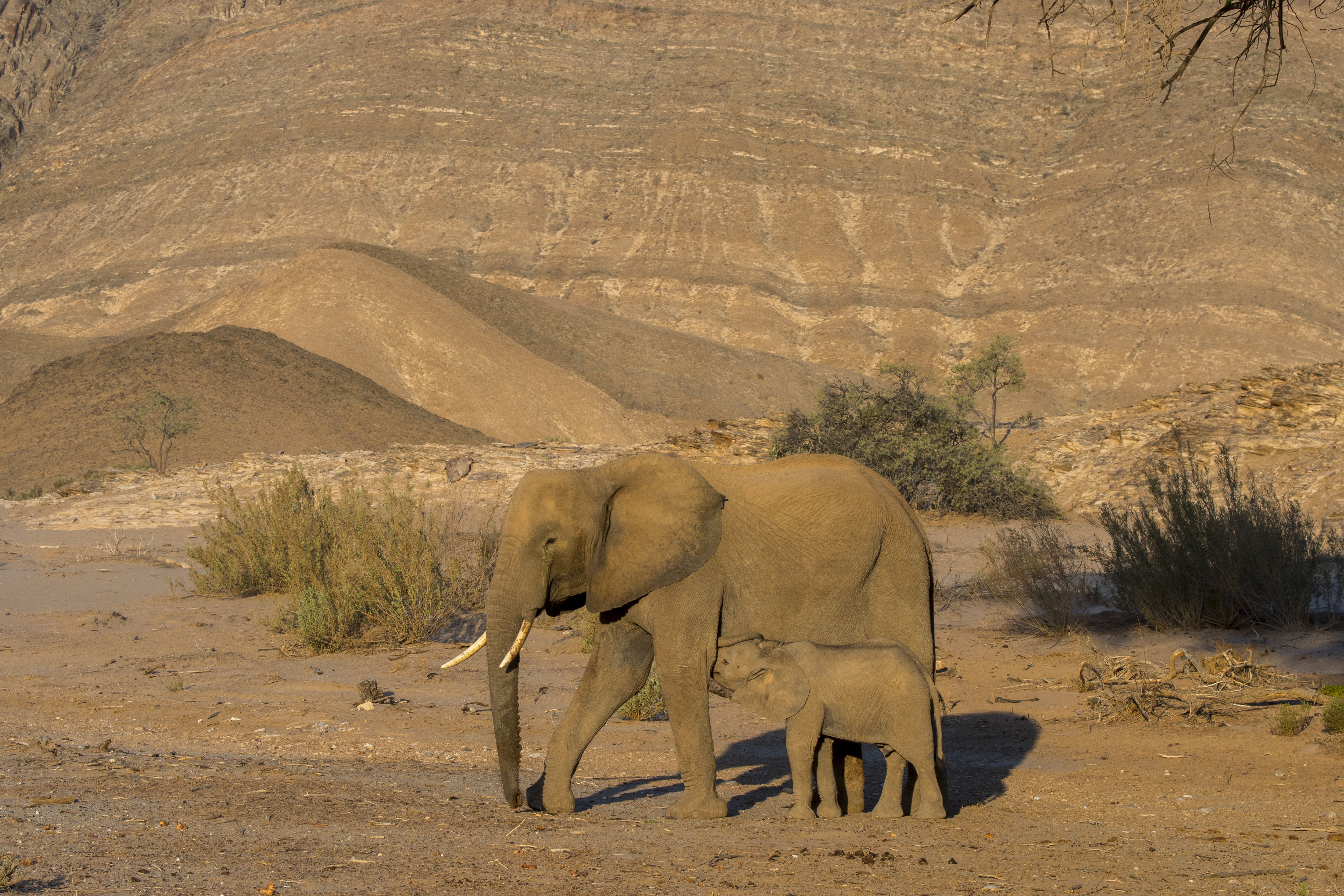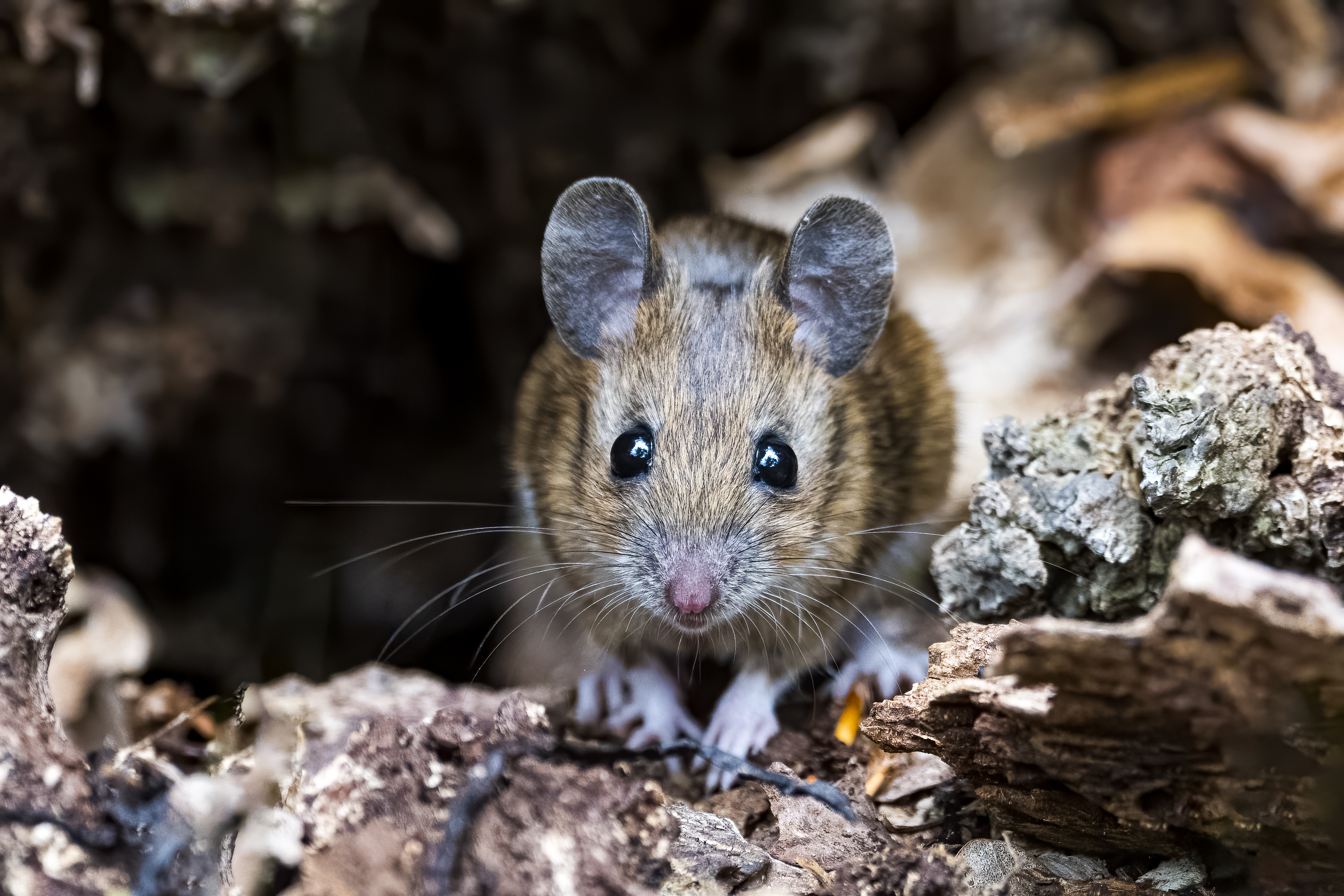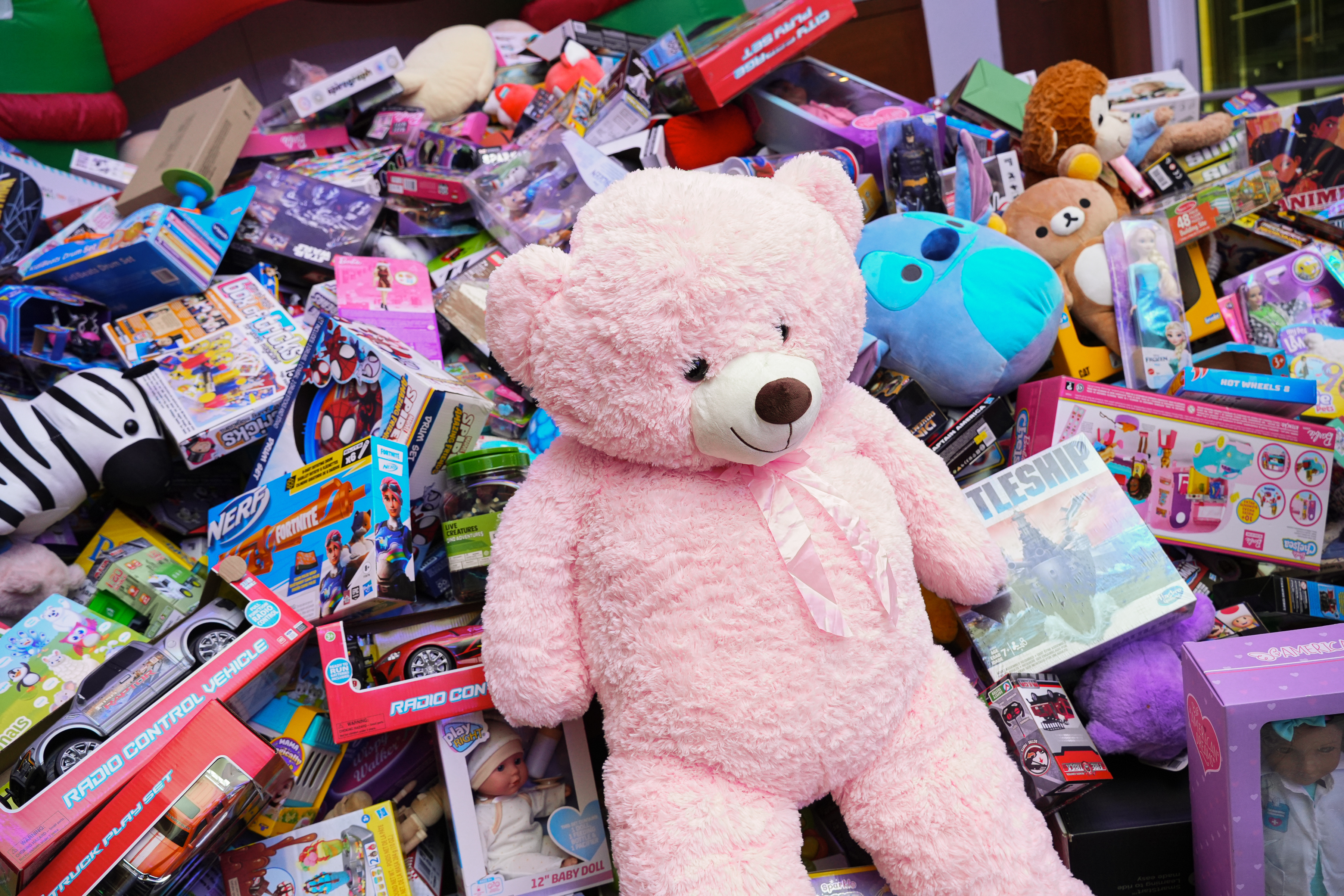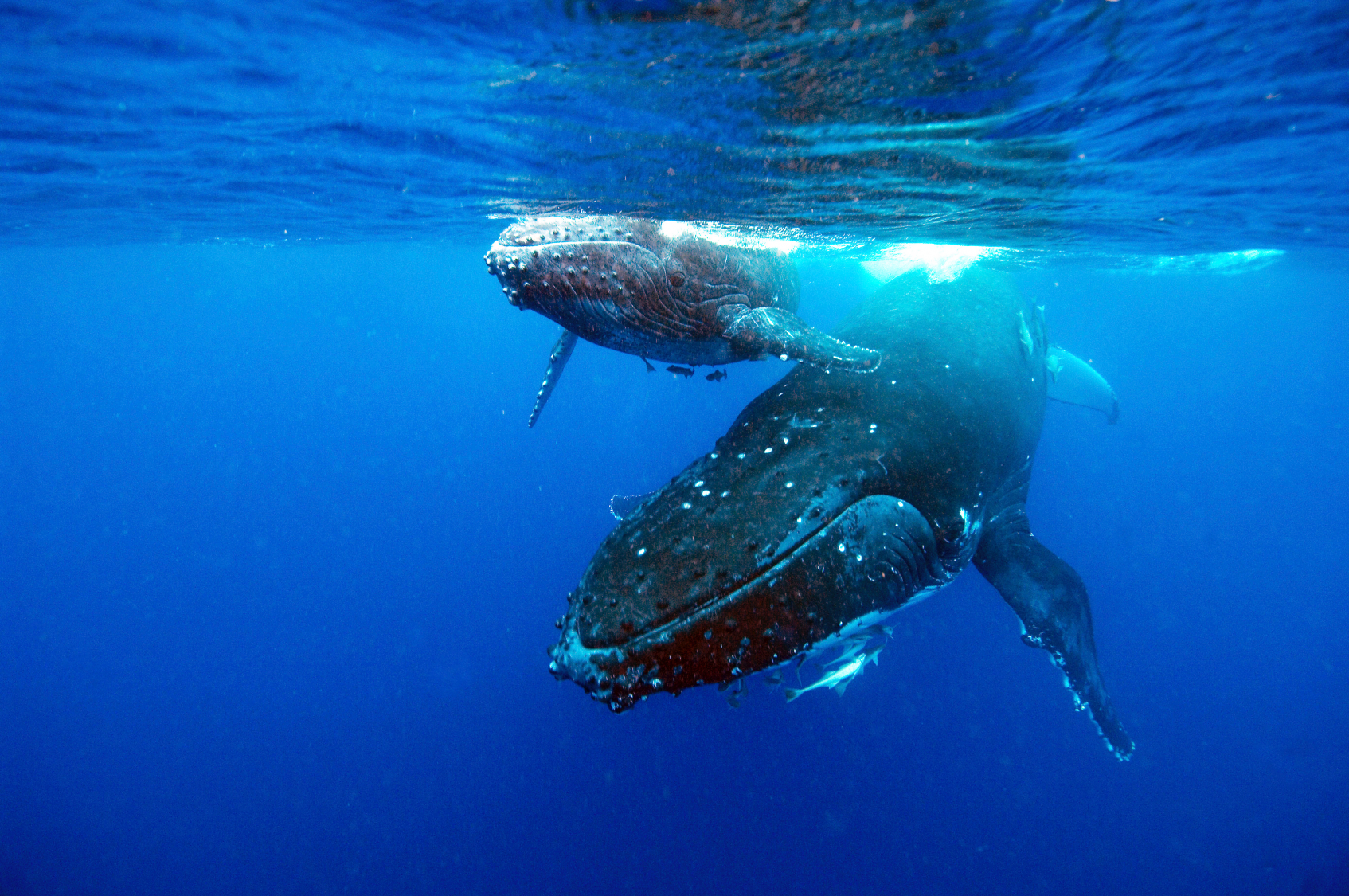The week's good news: April 20, 2023


- 1. Filmmaker captures extraordinary footage of a desert elephant's birth
- 2. Pristine coral reef discovered off the Galapagos Islands
- 3. Microbe found in volcanic hot springs can quickly capture CO2
- 4. This grandfather shows it's never too late to go to college — or play on the baseball team
- 5. Mailbox transformed into a dollhouse brings joy to neighborhood
A free daily email with the biggest news stories of the day – and the best features from TheWeek.com
You are now subscribed
Your newsletter sign-up was successful
1. Filmmaker captures extraordinary footage of a desert elephant's birth
While setting up his camera to film a herd of elephants, Bob Poole heard the animals begin to make loud noises, and knew the moment he was waiting for had arrived. The Emmy Award-winning cinematographer was in Namibia, filming for National Geographic's new series, Secrets of the Elephants, premiering April 21. "I just jumped to my camera and started rolling," Poole told The Week. "All I saw were these legs, and I zoomed right into the middle of the action. It was just a pile of legs, and then they kind of separated and revealed this blob of soaking wet dark flesh." Poole has been filming wildlife for more than four decades, but this was a first: recording the birth of a desert elephant. "It was extraordinary," he said. Secrets of the Elephants captures the way that elephants "are so much like us all the way around," Poole said. "It's very special in so many ways and anybody who spends time with them gets to feel that and see it very quickly."
2. Pristine coral reef discovered off the Galapagos Islands
During a recent deepwater expedition near the Galapagos Islands, scientists were stunned to discover a "totally pristine" coral reef. The reef is about 1.2 miles long and 400 meters deep, on the summit of a submarine mountain, Ecuador's Environment Minister Jose Davalos said Monday. Because of El Niño weather in 1982 and 1983, scientists thought there was just one surviving reef in the Galapagos, Reuters reports. The newly discovered reef has more than 50 percent living coral, which is at least several thousand years old. "This is very important at a global level because many deepwater systems are degraded," said Stuart Banks, senior marine researcher at the Charles Darwin Foundation.
The Week
Escape your echo chamber. Get the facts behind the news, plus analysis from multiple perspectives.

Sign up for The Week's Free Newsletters
From our morning news briefing to a weekly Good News Newsletter, get the best of The Week delivered directly to your inbox.
From our morning news briefing to a weekly Good News Newsletter, get the best of The Week delivered directly to your inbox.
3. Microbe found in volcanic hot springs can quickly capture CO2
A microbe has been found inside volcanic hot springs that captures carbon dioxide, leaving researchers hopeful it could be harnessed to remove greenhouse gasses from the atmosphere. Scientists say the microbe, a cyanobacteria, has naturally evolved to absorb CO2 and sinks in water, The Guardian reports. The microbe was discovered in September near the Italian island of Vulcano. Dr. Braden Tierney of Weill Cornell Medical College and Harvard Medical School said the organism grows "astonishingly quickly," and researchers are able to take advantage of "3.6 billion years of microbial evolution. The nice thing about microbes is that they are self-assembling machines." There "really isn't a one-size-fits-all solution" to using carbon capture to fight climate change, Tierney said, but there will be "circumstances where you really want a fast-growing aquatic microbe that sinks." One possibility could be creating large ponds filled with the microbe.
4. This grandfather shows it's never too late to go to college — or play on the baseball team
Jim Fullan is ready to play ball. The 56-year-old grandfather is living his dream as a member of the baseball team at Montgomery County Community College in Blue Bell, Pennsylvania. As a teenager, he struck out when trying to get on his high school's team, but earlier this year, Fullan retired from the U.S. Postal Service and decided to give it another shot, this time at college. The coaches and his fellow students were supportive, and Fullan was one of the 18 players who made the team. He attends daily three-hour practices and games, and is also known for giving pep talks. His coach, Mike Fitzgerald, told Today, "His relationship with the team is really good because he is mature, he's been through life." Fullan will graduate next spring with a degree in liberal studies, and said while "it's nice to have dreams of doing things ... when you actually do them, it's so fulfilling."
A free daily email with the biggest news stories of the day – and the best features from TheWeek.com
5. Mailbox transformed into a dollhouse brings joy to neighborhood
Don Powell doesn't know how Mary and Shelly found his mailbox, but he's glad they did. The Orchard Lake, Michigan, resident told USA Today he has a custom mailbox that looks like a modern house, and one day, instead of finding bills and flyers inside, he discovered two dolls and a note, which introduced the figures as Mary and Shelly and said, "We decided to make this our home." Powell and his wife wondered if someone left the dolls in the wrong mailbox, but two weeks later, they found Mary and Shelly surrounded by new items, including a painting and a rug. The Powells were "intrigued" by the miniature home being set up in their mailbox, Don said, and he started posting about it online. The mysterious benefactor continues to add items to the mailbox house, even putting in holiday decor. Don loves "never knowing what might be in the mailbox," and said the whole thing has "created happiness and joy for so many people."
Catherine Garcia has worked as a senior writer at The Week since 2014. Her writing and reporting have appeared in Entertainment Weekly, The New York Times, Wirecutter, NBC News and "The Book of Jezebel," among others. She's a graduate of the University of Redlands and the Columbia University Graduate School of Journalism.
-
 The ‘ravenous’ demand for Cornish minerals
The ‘ravenous’ demand for Cornish mineralsUnder the Radar Growing need for critical minerals to power tech has intensified ‘appetite’ for lithium, which could be a ‘huge boon’ for local economy
-
 Why are election experts taking Trump’s midterm threats seriously?
Why are election experts taking Trump’s midterm threats seriously?IN THE SPOTLIGHT As the president muses about polling place deployments and a centralized electoral system aimed at one-party control, lawmakers are taking this administration at its word
-
 ‘Restaurateurs have become millionaires’
‘Restaurateurs have become millionaires’Instant Opinion Opinion, comment and editorials of the day
-
 The week's good news: Jan. 18, 2024
The week's good news: Jan. 18, 2024Feature It wasn't all bad!
-
 The week's good news: Jan. 11, 2024
The week's good news: Jan. 11, 2024Feature It wasn't all bad!
-
 The week's good news: Jan. 4, 2023
The week's good news: Jan. 4, 2023Feature It wasn't all bad!
-
 The week's good news: Dec. 21, 2023
The week's good news: Dec. 21, 2023Feature It wasn't all bad!
-
 The week's good news: Dec. 14, 2023
The week's good news: Dec. 14, 2023Feature It wasn't all bad!
-
 The week's good news: Dec. 7, 2023
The week's good news: Dec. 7, 2023Feature It wasn't all bad!
-
 The week's good news: Nov. 30, 2023
The week's good news: Nov. 30, 2023Feature It wasn't all bad!
-
 The week's good news: Nov. 16, 2023
The week's good news: Nov. 16, 2023It wasn't all bad!
